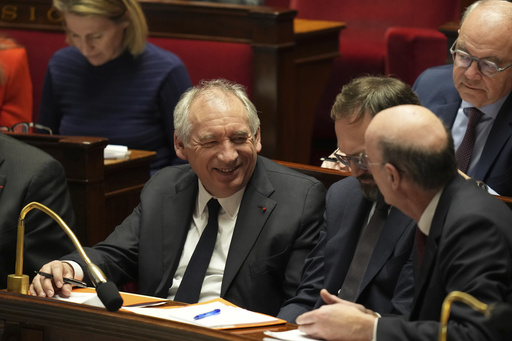
PARIS — The leader of France’s far-right National Rally party expressed on Tuesday that he does not support the no-confidence motion that has been introduced against the government, increasing the likelihood that the current prime minister will retain her position and that the budget for 2025 will pass successfully.
A vote of no confidence is set to take place on Wednesday in the National Assembly, requiring a minimum of half of the 577 votes for it to succeed. Lawmakers from the hard-left France Unbowed, the Communist Party, and the Greens are anticipated to support the motion; however, they lack sufficient numbers to topple the centrist administration.
Jordan Bardella, the president of the National Rally—currently the largest faction in the National Assembly—stated, “During this time, the French public would not gain from experiencing another period of instability.”
The leftist Socialist Party also declared previously that it would not endorse the no-confidence motion, arguing that “it’s time to provide France with a budget.”
On Monday, Prime Minister François Bayrou utilized special constitutional authority to push through the 2025 budget without seeking a vote from legislators.
According to the Constitution of France, if the no-confidence measure is rejected, the budget will automatically be recognized as approved.
In December, a similar no-confidence initiative, which stemmed from budgetary disagreements, resulted in Prime Minister Michel Barnier’s resignation after merely three months at the helm.
This time, Bayrou is pursuing enhanced stability for his minority government, engaging in extensive discussions with the Socialists to establish a non-aggression agreement.
As part of the negotiations, Bayrou pledged to allocate more funding to public hospitals and promised not to eliminate 4,000 jobs within the national education system. Additionally, he mentioned last month that he was willing to revisit a contentious proposal to increase the retirement age from 62 to 64.
The amended plans for the budget are designed to cap France’s deficit at 5.4% of its gross domestic product this year.
Political turmoil in France has been prevalent since President Emmanuel Macron instigated snap elections last year, which resulted in no political party securing a majority in the parliament.

